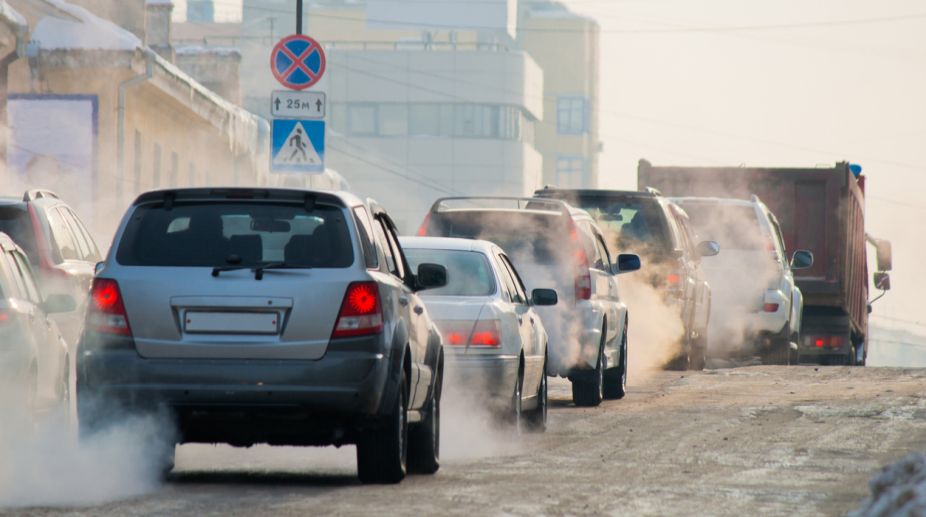LG writes to Kejriwal, says Delhi model shrouded in haze of smog
Saxena said over the last two years he flagged the issue of air pollution in the capital by writing to him and Chief Ministers of neighbouring states.

State government gearing up to tighten the grip on fake Vehicle pollution certificate(Photo: Getty Images)
Air pollution is the name for the mixture of harmful particles and gases in the air around.
The burning of fossil fuels by motor vehicles and power plants releases a mixture of pollutants, such as tiny particles, nitrogen oxides, volatile organic compounds , carbon monoxide, methane, hydrocarbons and nearly 200 other toxic pollutants, which are also carcinogenic.
Chemical reactions in the atmosphere between nitrogen oxides and volatile organic compounds produce ground-level ozone, a component of smog, which becomes most prevalent around the Diwali season.
Advertisement
Indiscriminate building construction, poor management of infrastructure development, road construction, dumping of malba in public places, lack of an efficient public transport system, enormous vehicular and industrial growth, burning of leaves and wood in the open are largely responsible for the air pollution in cities.
Moreover, the accumulation of waste in landfills adds to the generation of methane gas. Tiny airborne particles from burning the stubble can travel thousands of miles and affect the air quality in distant places as is observed in Delhi during winters. Diwali is known for the many fold increase in pollution due to the burning of fire crackers.
The resulting cocktail of pollution can have detrimental effects on human health, wildlife and vegetation. Studies have found that higher levels of outdoor air pollution are linked to a number of health hazards including worsening lung function, cough, mucous production, shortness of breath, wheezing, asthma attacks, doctor visits for respiratory infection in young children, hospitalisation for pneumonia in infants and the elderly, hospitalisation for chronic obstructive pulmonary disease, heart attacks, stroke, respiratory and cardiovascular diseases.
A number of groups are at higher risks of experiencing certain health effects of outdoor air pollution.
They include infants and young children, people with lung diseases like asthma and chronic obstructive pulmonary disease, adults with heart diseases and the elderly. Here are a few pointers to keep in mind:
As an alternative to driving a car, one should walk, cycle or use public transport where it is suitable and safe to do so. Car pooling, travelling at moderate speeds and maintaining correct tyre pressure improves fuel efficiency and reduces pollution. Management and recycling of waste, avoidance of plastics, production of compost, use of paper bags, avoidance of burning of leaves, stubble and trash, regular and strict check on pollution caused by emissions from vehicles, industries and infrastructure projects are keys to fighting air pollution. Everyone contributes to the national and global emissions of pollutant gases, so it is not only governments that can take action to reduce the environmental damage.
The cumulative energy reductions by individuals would reduce the need for energy consumption, conserve stocks of raw materials such as coal, oil and gas, and bring about a reduction in pollutant gas emissions. Be aware of the health effects of air pollution.
If all of us reduced our energy consumption a little bit, we would be able make a difference.
(The writer is director and head, department of pulmonology, critical care and sleep medicine, Fortis Memorial Research Institute, Gurugram, Delhi NCR)
Advertisement